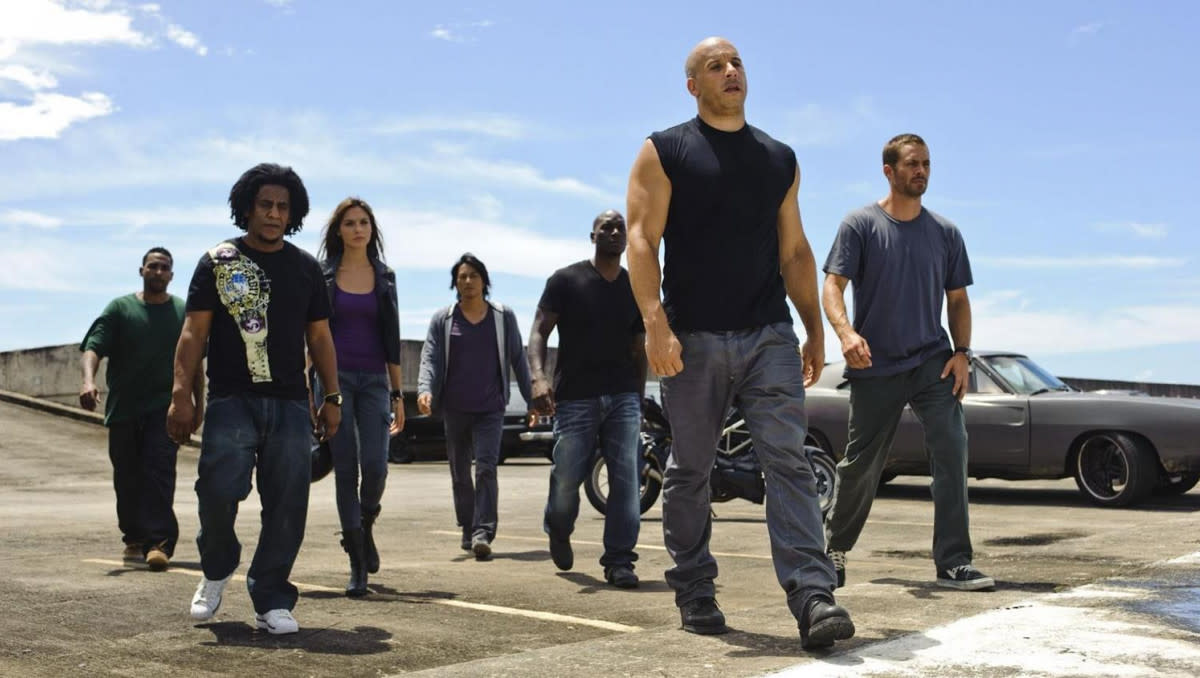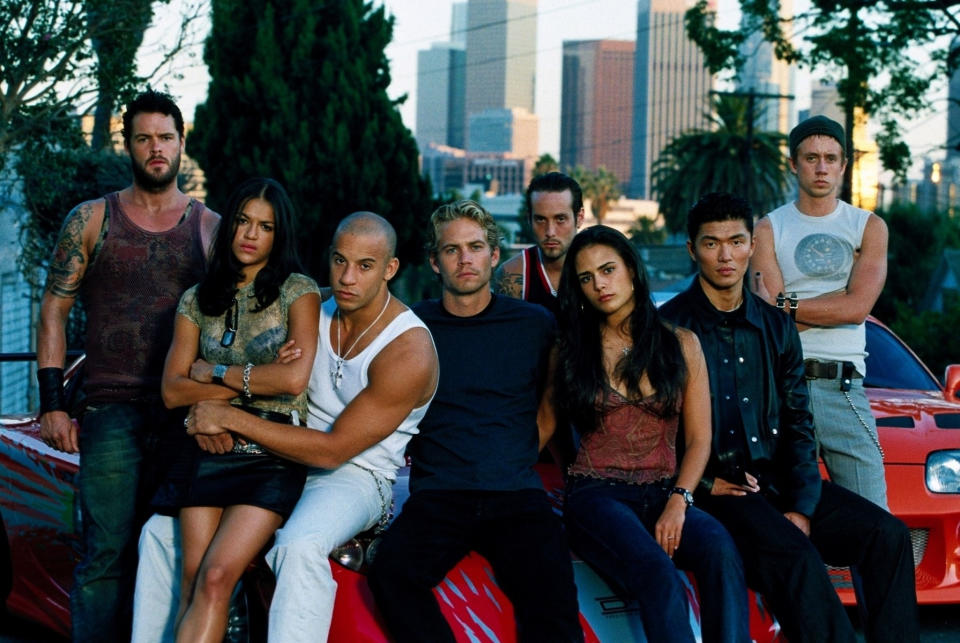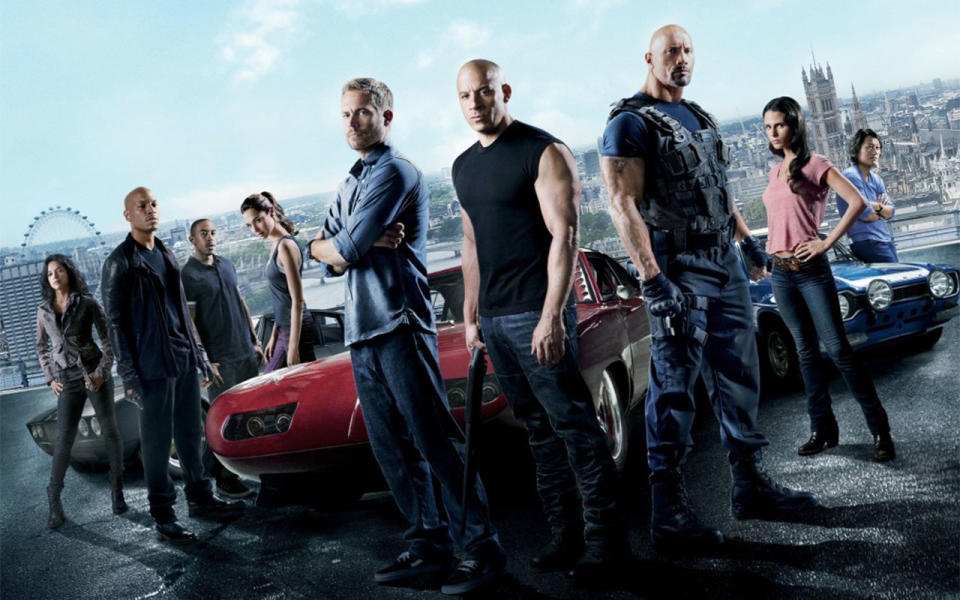How Fast & Furious became Hollywood's benchmark for diversity

Earlier this year, director Scott Derrickson tweeted: “Wish more online diversity activists had aggressively celebrated ROGUE ONE. Praise can be as effective as criticism.” That’s ‘Doctor Strange’ director Scott Derrickson, himself no stranger to issues of diversity after he was accused of ‘whitewashing’ by casting Tilda Swinton as an Asian character. One thing is for sure: filmmakers and audiences alike seem to be listening to calls for greater diversity, and although improvements are slow and often barely perceptible, changes are being made for the better.
The principle reason? The ‘Fast & Furious’ movies: Hollywood’s benchmark for representation and the most diverse blockbuster series of the modern era.
Rewind to 2001, and the release of ‘The Fast And The Furious’, with its fast cars and bright colours and literal race wars. Nobody gave this little movie much hope. But with a cast featuring Vin Diesel (a mixed-race man who says he is of “ambiguous ethnicity”), Michelle Rodriguez (of Dominican and Puerto Rican heritage), Jordana Brewster (who hails from Panama City) and Paul Walker (California born and bred), it looked like a Benetton advert.

Audiences must have seen something that analysts didn’t, because it made almost $150 million at the domestic box office. It was an awakening of sorts: an invitation to other cultures that said not all blockbusters were about white people.
Fast-forward to 2017. The ‘Fast & Furious’ franchise is now an unstoppable juggernaut that tramples all who stand in its way. With takings of almost $4 billion to date and plans to make ten movies or more, the legitimacy of the ‘Fast & Furious’ series is no longer in question. Although the primary draw for most – okay, for all – is the insane action and the frankly insulting disregarding of the laws of physics, ‘Fast & Furious’ movies put family first – and the filmmakers behind the series know that you can’t be part of a family without being inclusive.
BAFTA moves to improve diversity
Marvel denies whitewashing Doctor Strange
Report slams diversity in Hollywood
Take a look at the other cast members who have played major roles so far, aside from Diesel, Walker and the crew. African-Americans Tyrese Gibson and Ludacris have been around since the ‘2 Fast 2 Furious’ days. Spanish actress Elsa Pataky and Israeli-born star-in-waiting Gal Gadot bring the glamour. Samoan legend Dwayne ‘The Rock’ Johnson brings the muscle. South Korean-born actor Sung Kang got the character with the coolest name: drift racer Han Seoul-Oh. Throwaway roles are gifted to the likes of Tony Jaa (hailing from Thailand), Djimon Hounsou (Benin, West Africa), Bollywood star Ali Fazal and Iggy Azalea (from somewhere between Sydney and downtown Harlem).
A ‘Fast & Furious’ movie is a guarantee of diversity: a promise that no matter where you come from, you’ll find a familiar face up on screen. Even the talent behind the camera is ethnically diverse: only one of the eight Fast & Furious movies, including 2017’s The Fate Of The Furious, were directed by white faces.
“It doesn’t matter what nationality you are,” says Diesel about the series’ role as a diversity standard-bearer. “As a member of the audience, you realise you can be a member of that ‘family’. That’s the beautiful thing about how the franchise has evolved.” The playmakers at studio Universal agree. “Diverse stories with diverse characters need to be told,” says Jeffrey Kirschenbaum, Universal’s production co-president. “Not out of any sense of altruism, but because your audience is looking for stories they can connect to and access. If they can’t connect and access, they’re not coming. All of us have to take heed of that. We’re starting to recalibrate how we’re looking at not only movies and how to cast them, but who our heroes are.”
Notice that it’s not the smaller, more interesting movies that are forcing this shift in thinking; awards season always ignites conversations about race, or rather the lack of representation therein (remember the #OscarsSoWhite uproar?), but the only colour that truly matters to every studio in Hollywood is green. Money talks, and right now, money is flocking to studios that understand that minorities like going to the movies too

In 2013, the year ‘Fast & Furious 6’ was released, 46% of movie tickets sold that year were bought by minorities. The sixth ‘Fast & Furious’ movie made a franchise high total of $238 million, but three-quarters of the audience who paid to see ‘Fast & Furious 6’ in the cinema were non-white. Producer Matt Alvarez, now president of Relativity Media’s Multicultural Division, understands why ‘Fast & Furious’ films hit such heights. “You want your movies to reflect what’s out there in society,” he says. “What the Fast movies have done is force people to make movies that are reflective of how America looks.”
Take a look at the current blockbuster landscape. ‘Rogue One: A Star Wars Story’ features a female lead, a prominent Mexican actor, plus cast members that hail from Hong Kong, Denmark, China and Australia. ‘The Force Awakens’ gave a major role to John Boyega, a black Londoner with Nigerian ancestry. Even Oscar Isaac hails from Guatemala. Vin Diesel’s other franchise, the ‘xXx’ series, features major cast members from India, China, Bulgaria and Ukraine. Marvel are gearing up to release their first black superhero solo movie with ‘Black Panther’, a movie that features more black talent than most other superhero movies combined. The new ‘Magnificent Seven’ were 57% non-white. These casting decisions are not unrelated.

Diversity comes in many forms. The most prevalent form of diversity seen so far in this decade is often seen as pandering to overseas markets like China with token scenes and actors added as an apparent appeasement to Eastern audiences – the Chinese call these films “flower vases”, so empty are they of intent (‘Iron Man 3’, for example, had random adverts for Chinese milk inserted into the local versions). At the opposite end of the spectrum, there are movies like the ‘Fast & Furious’ films, which know that diversity sells but also success in itself isn’t the end-game; that representation matters, full stop.
Diesel, for what it’s worth, never knew his father or where he came from, admitting: “All I know from my mother is that I have connections to many different cultures.” He may not know how true that really is: in being a driving force in making the ‘Fast & Furious’ franchise the multi-cultural movie extravaganza it is today, Vin Diesel has brought more people together than any politician or activist in the modern age. And you thought they were just dumb movies about fast cars.
Read more
Viola Davis makes Oscar history
The worst changes ever made to Star Wars
Video store with 14,000 copies of Jerry Maguire

 Yahoo Movies
Yahoo Movies 
